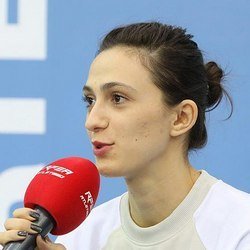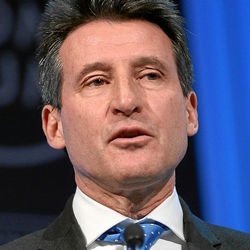The IOC’s pricking conscience. Why is Bach fighting to get Russians back to world sport?
The IOC made a U-turn in his rhetoric and is fighting for Russia at the Games in Paris in 2024
Talks about the necessity of returning Russian athletes to the Olympics Games in Paris in 2024 are becoming louder and louder. One has been able to notice softening rhetoric in Thomas Bach’s speeches since September, while today the IOC has openly opposing politicians from the countries that are against it. Realnoe Vremya’s sports staff reflects on what influenced the IOC and how Western countries are ready to fight not to allow Russians and Belarusians.
Did Lasitskene give an impulse to reconsider the stance of the IOC?
No matter how hard the International Olympic Committee tried to fix what they did, seemingly, it is impossible to reverse everything. The IOC already contracted its Olympic Charter when it urged international sports federations to ban Russian athletes from competing in competitions under its aegis a year ago. According to the official formulation, “for safety reasons.”
Most federations followed this recommendation, but some didn’t forget the purpose of sport as a factor of union.
Thomas Bach and his aides started to be indicated that tennis, chess players, wrestlers competed absolutely peacefully and weren’t persecuted in Russia and then in the world only in summer when the preparation for new seasons already began and no soon return was the case in point.

“I don’t doubt that you will lack courage and decency to lift the ban on Russian athletes. Because you will have to admit that you have been violating the charter of the IOC during all these months and charters of international federations turned from real documents in papers nobody needs. But I am pleading you to stop shifting the responsibility for what’s happening in the sports works from yourself to the alleged ‘care about Russian athletes.’ It is unbecoming for the IOC president to deal with such things,” Lasitskene wrote in her letter then.
Perhaps, this was an impetus for Bach and his team’s conscience to start pricking, but the first talks about the necessity of returning Russians to world sport were raised by September when it became known that most countries were calling upon doing it as soon as possible. Today when we see consolidated summits consisting of Western countries that gather to discussed how not to allow Russians to compete at the Olympics, one can clearly understand that the urges for the return come from mainly neutral countries — Asian, African and South American, from the countries that still do not understand on what grounds hundreds of athletes were banned from international competitions for having dark red passports.
The International Olympic Committee praying for forgiveness
So a summit of sport ministers with representatives of 36 countries was held in Great Britain on 10 February. According to the information in the press, the majority of attendees were in favour of banning Russians and Belarusians from the Olympic Games in Paris in 2024.
But here the IOC really intervened and showed that it dramatically changed its stance since last February. It turned out that a few days later the International Olympic Committee insistently recommended a coalition of countries that was against Russia and Belarus at the Olympics not to sign a joint declaration demanding not to allow the athletes to compete, Spiegel wrote.
According to the newspaper, the IOC sent out special letters to national Olympic committees of those countries whose sport ministers participated in the international summit.
“We strongly recommend that you do not sign the declaration, or at least make sure that the wording reflects the opinion of the Olympic Movement as much as possible,” reads the letter, Spiegel says.
One can only guess the reason for such changes. If last February the IOC was categorical about not allowing Russians, now it is following almost a fighting policy to return them and even ready to confront leading members of the Olympic organisation.
In reply, Poland directly claimed that in case Russians and Belarusians were allowed, it was ready go to extremes and blackmail the IOC with its boycott. And there is no doubt it can do this. Nobody in Poland has cared about the principle that politics was outside of the Olympic committee of this country for a long time. No matter how many letters the IOC sends out.
World Athletics playing “doping card” not to start the discussion of Russians’ comeback

But let’s be honest and admit that the “doping card” is played here only as pretext so that the issue of Russians’ return doesn’t reach a more serious and constructive level. World Athletics says that the transparency of Russian sport must be the first step before starting to discuss the return or ban of athletes because of the political situation.
“The Council will discuss the roadmap for reinstatement but specifically around the egregious attack on the integrity of our sport through doping. Only on the basis of that conversation, or that discussion, would we move on to the second discussion. The council last February made (a) judgment (on) the situation in Ukraine and the inability of Ukrainian athletes to be competing openly and fairly and with the kind of integrity that we demand in our competitions. It was decided by the council it was inconceivable that Russia athletes (could compete) ... So the council will make a decision about whether that position that we decided upon in February still pertains,” Reuters cits Coe.
In fact, Russia is offered to do a preliminary test to access the exam. All this seems to be an intended extension of the process not to switch to real actions to reinstate Russian athletes. We should admit that one shouldn’t hope for progress today. Like with UEFA, the International Olympic Committee is just sensing the moods, not taking real actions. Real actions to return Russian to world sport can start only after the political tension goes down.